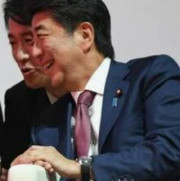More than 12,000 participants from 120 countries, including government representatives and even leaders of some states, gathered for that all-important event organized under UN auspices. Russia was represented at the WSIS by minister of information technologies and communications Leonid Reiman. The Tunis summit came as a continuation of a similar event held in 2003 in Geneva where a declaration on the building of "a people-centered, inclusive and development-oriented Information Society" was adopted.
The document proclaimed the intention of the governments, and public and private structures all over the world to overcome technological divisions and work jointly towards the fulfillment of "the millennium goals" set by the UN, among them making the Internet accessible to all mankind by 2015. As of today, only 875 million people, or about 14 percent of the Earth's population, have access to the world-wide web.
In the US 62 percent of the population are Internet-users. However, in 2003 rich countries abstained from providing support for the "Digital Solidarity Fund" called upon to finance Internet projects in developing countries. So it was not accidental that the Tunis summit was opened by the UN Secretary General Kofi Annan's call on all countries to actively fight against digital inequality and invest in projects aimed at reducing it.
For all that, the failure to solve the pressing problem of ending the US monopoly of the Internet was a foregone conclusion. Ahead of the Tunis event UN member countries had been debating for nearly six months the issue of making changes in the current system of control of the Internet. A number of states, including China, Brazil, South Africa, Iran, Saudi Arabia, Norway, Switzerland and Russia, had opposed the US dominance of the Internet and favored transferring the control functions to a specialized international body attached to the UN.
However, the Bush administration had launched, with the support of the biggest American IT companies and a wide use of the media, a large-scale campaign to lobby its interests. With the approach of the Tunis summit, US high-ranking officials had become ever more insistent in saying that the Internet, which was originally a project of the US military and civilian scientists, had always been in American hands and must remain that way.
At the end of October this viewpoint had also been confirmed in a resolution passed by the US Congress which recommended that President Bush stuck to that stand. Besides, US State Secretary Condoleezza Rice had sent appropriate letters to the key countries of the European Union, first of all Great Britain. And 10 days ahead of the opening of the WSIS in Tunis UN Secretary General Kofi Annan himself had voiced his agreement with the US position, having published an article to that effect in the US daily "Washington Post".
As a result, on the very eve of the opening of the Tunis forum a decision had been taken to leave the system of the assignment of domain names and addresses to the jurisdiction of US non-commercial organization "Internet Corporation for Assigned Names and Numbers" (ICANN) accountable to the US Trade Department. Hence, Washington will continue to control the Internet, at least in the foreseeable future. The governments of the member countries of the Tunis summit also agreed on creating in 2006 an Internet Governance Forum (IGF), which, despite its name, would have no real power to control the organs governing today the world-wide web.
Though some observers insist that the control of the Internet is a fairly relative notion, the US dominance of the web must not be underrated. Under the pretext of defending its national security, the US can always resort to exceptional measures if they like. For example, it can stop assigning domains and names or, theoretically, "truncate" its so-called root DNS servers. Since out of all the 13 such servers existing in the world, 10 are located in the US, 2 in Europe and 1 in Japan, one can easily imagine the possible consequences.
As the problem of re-distributing the control of the Internet became no longer relevant, the participants of the Tunis summit had to take up more prosaic problems of the present-day Internet – viruses, spam, web criminality and overcoming the so-called "digital inequality". The summit highlighted a prototype of a cheap (worth less than $100) portable "computer for the poor" whose mass production is planned in order to speed up the "internetization" of the third world countries.
The Tunis summit was not devoid of scandal. Some non-government organizations met with serious problems trying to get accreditation for the WSIS. Thus, general secretary of the "Reporters Without Frontiers" Robert Menard was not admitted to the forum. In this connection human rights activists accused the Tunisian government of suppressing the freedom of speech and of web censorship. Representatives of the "Reporters Without Frontiers" made public a list of the world "enemies of the Internet", which included, besides Tunisia, such countries as Byelorussia, Vietnam, Iran, China, N. Korea, Cuba, Libya, the Maldives, Burma, Nepal, Saudi Arabia, Syria, Turkmenia and Uzbekistan.
International research organization "OpenNet Initiative", for its turn, published a report saying that Tunisia and other "enemies of the Internet" are buying technology for blocking site access – program SmartFilter – from the USA, namely from US company "Secure Computing".
Summing up the results of the Tunis summit, it can be stated that though the US has reaffirmed its dominance of the Web, it is quite clear that the Internet has become a too important factor of economic, cultural and everyday life of the world to remain in the hands of the US alone. No matter how stubbornly may Washington oppose it, the Internet must not remain an exclusive prerogative of the USA.
Admittedly, no structure has been formed as yet to become an acceptable alternative to the US sole control of the Internet. Those who propose that the Internet be put under a joint jurisdiction of all the states - under the auspices of, say, the UN, are forgetting that, as of today, it has no available structure that could take on that function.
But if the world community fails to solve this problem already in the foreseeable future, the threat of some states or regions wanting to set up their own alternative Internets or isolating themselves through special protocols may become quite real. This would mean the end of the Internet as a means of communication of everybody with everybody and the most promising tool of the progress of human civilization.









